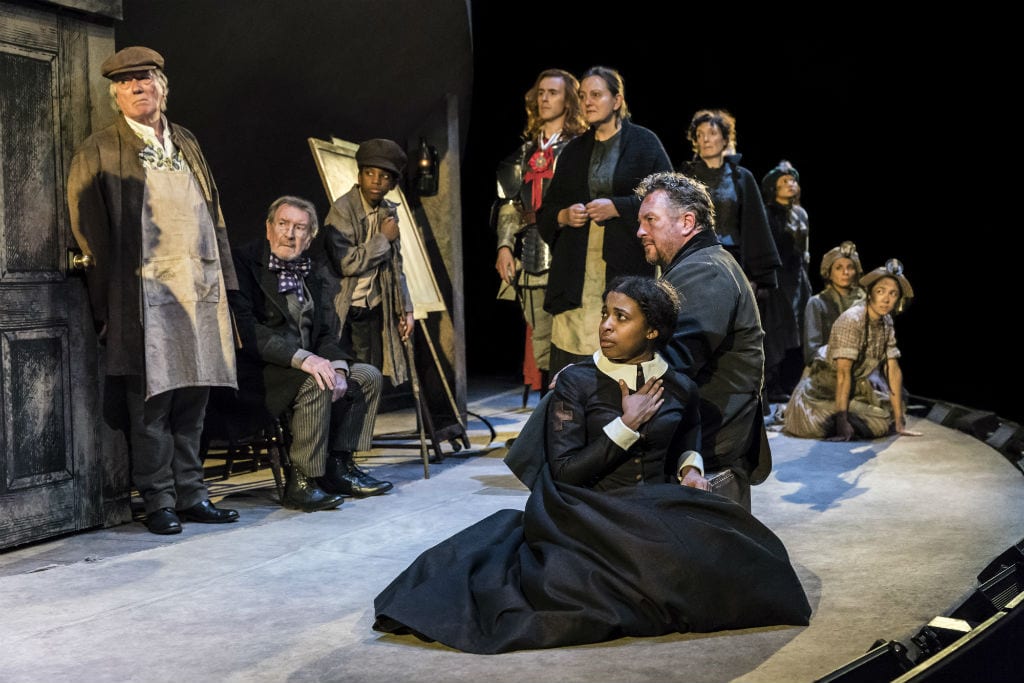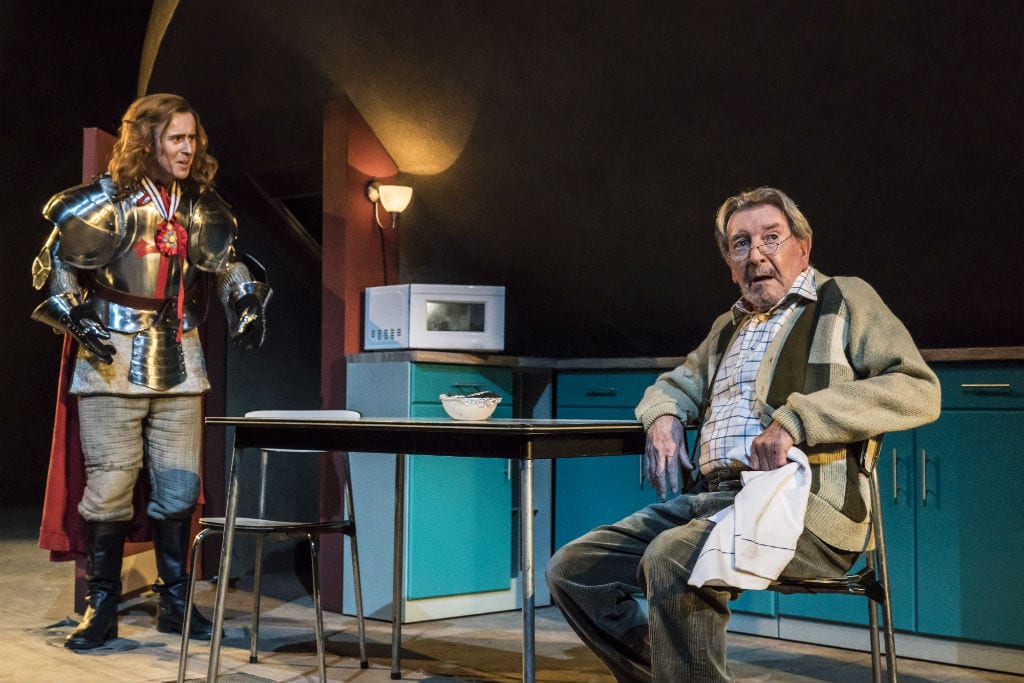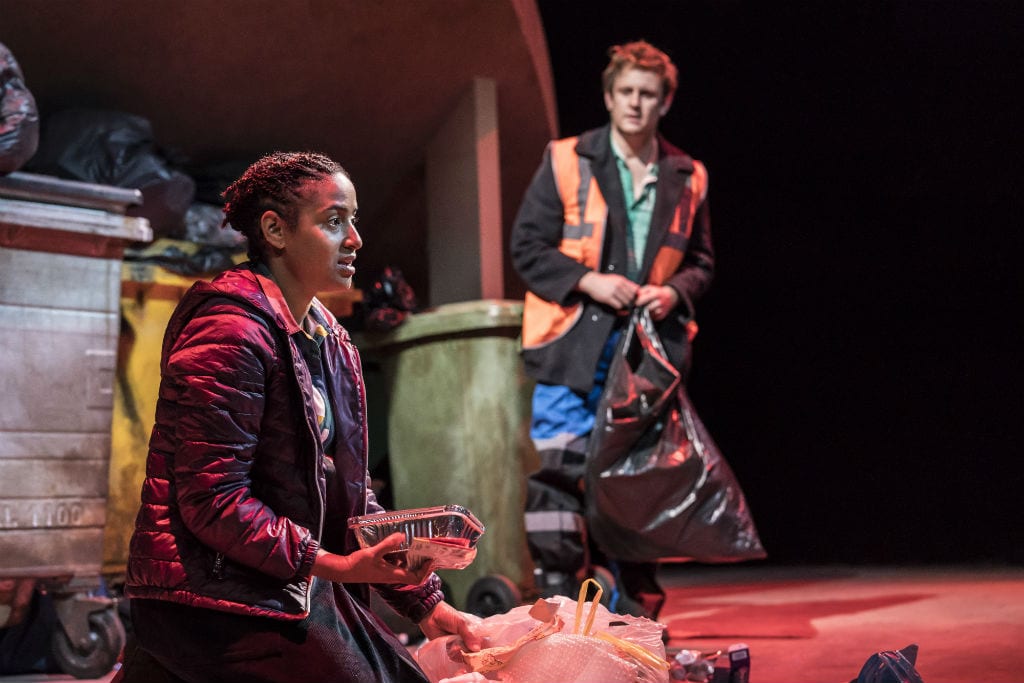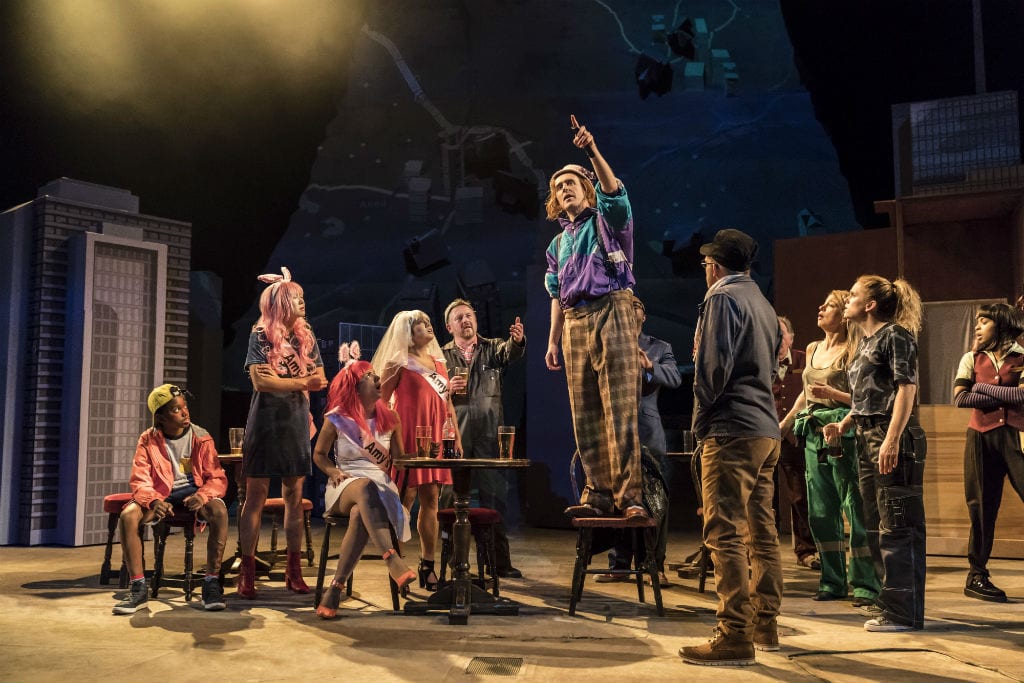Although the actual story of Saint George and the Dragon dates back to medieval legend, the very notion of national identity is inherently central to cultural, political and economic discourse in the present day. History, myth and shared narratives form our belief systems and mundane ways of life – history is present in all that we do. However, as well as unifying certain groups, collective identities provoke conflict and regression, which is what Rory Mullarkey’s Saint George and the Dragon successfully explores with creative, amusing and philosophical flair.
John Heffernan is captivating, engaging and genuinely funny as our protagonist George, who, along with one group of villagers, traverses three emblematic periods of time which gives us the chance to consider the mythical figure and archetypal characters in various contexts, concluding with urban modernity. Amaka Okafor, as Elsa, plays the damsel in distress part wonderfully with a feminist edge and endearing innocence, and although the stage is at times crowded with the large cast, every member maintains their role consistently throughout the entire duration, transporting their characters credibly through three historic eras.
Although slightly panto at times, especially with Julian Bleach’s camp twist on the ominous dragon, this production offers a fun, accessible window onto a theme which is more important for us to think and talk about now than ever. Saint George and the Dragon, through an impressive cast, slick direction and intelligent writing, provides audiences the chance to be entertained at a surface level or immerse themselves deeper into the symbolic and abstract undertones of the play. Either way, as the dragon takes different shapes and forms, we are forced to consider how ancient myth has seeped into our lives, with plenty of laughs along the way.
‘England cannot be defined as a culture, a race, an ideology, a set of institutions, a list of values or even a single story. It’s too old and complicated.’





